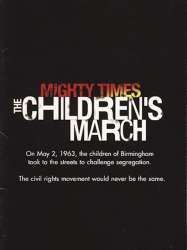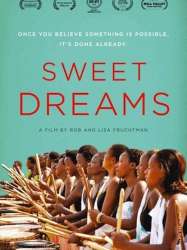The Witness from the Balcony of Room 306 is a american film of genre Documentary released in USA on 15 august 2008
The Witness from the Balcony of Room 306 (2008)

If you like this film, let us know!
- Infos
- Casting
- Technical infos
- Photos
- Videos
- Film quotes
- Characters
- Music
- Awards
Released in USA 15 august 2008
Length 32minutes
OriginUSA
Genres Documentary
Themes Films about racism, Documentary films about racism, Documentary films about law, Documentary films about historical events, Documentaire sur une personnalité, Documentary films about politics, Political films
Rating73%










The Witness: From the Balcony of Room 306 is a 2008 documentary short film created to honor the 40th annual remembrance of the life and death of Dr. Martin Luther King, Jr. The film received a 2008 Academy Award Nomination in the "Documentary Short Subject" Category at the 81st Academy Awards.
Comments
Leave comment :
Suggestions of similar film to The Witness from the Balcony of Room 306
There are 8975 with the same cinematographic genres, 10576 films with the same themes (including 50 films with the same 7 themes than The Witness from the Balcony of Room 306), to have finally 70 suggestions of similar films.If you liked The Witness from the Balcony of Room 306, you will probably like those similar films :

Freedom on My Mind (1994)
, 1h45Origin USA
Genres Documentary
Themes Films about racism, Documentary films about racism, Documentary films about law, Documentary films about historical events, Documentaire sur une personnalité, Documentary films about politics, Political films
Rating79%





In 1961, Mississippi was a virtual South African enclave within the United States. Everything was segregated. There were virtually no black voters. Bob Moses entered the state and the Mississippi Voter Registration Project began. The first black farmer who attempted to register was fatally shot by a Mississippi State Representative. But four years later, the registration was open. By 1990, Mississippi had more elected black officials than any other state in the country. As the New York Times said in their review of the film, "a handful of young people, black and white, believed they could change history. And did."
 , 40minutes
, 40minutesDirected by Robert Houston
Origin USA
Genres Documentary
Themes Films about racism, Documentary films about racism, Documentary films about law, Documentary films about historical events, Documentaire sur une personnalité, Documentary films about politics, Political films
Rating76%






Rwanda pour mémoire (2003)
, 1h8Directed by Samba Félix Ndiaye
Origin France
Genres Documentary
Themes Films set in Africa, Films about writers, Films about racism, Documentary films about racism, Documentary films about law, Documentary films about war, Documentary films about historical events, Documentaire sur une personnalité, Documentary films about politics, Political films
In 1994, between April and July, the massacre of Tutsis and moderate Hutus left one million dead. Instigated by Fest’Africa, a dozen African authors met four years after the events as writers in residence at Kigali, to try to break the silence of African intellectuals on this genocide.

Being Osama (2004)
Directed by Mahmoud Kaabour
Origin Canada
Genres Documentary
Themes Films based on the September 11 attacks, Films about racism, Films about religion, Films about terrorism, Transport films, Aviation films, Documentary films about racism, Documentary films about law, Documentary films about war, Documentary films about historical events, Documentaire sur une personnalité, Documentary films about politics, Documentary films about religion, Documentary films about technology, Documentary films about terrorism, Documentary films about cities, Political films, Films about Islam, Disaster films, Films about aviation accidents or incidents, Films about language and translation, Films about hijackings
Rating70%





The documentary details the lives of six Montreal Arab men, all with the first name "Osama":

Malcolm X (1972)
, 1h31Directed by Arnold Perl
Origin USA
Genres Drama, Documentary
Themes Films about racism, Documentary films about racism, Documentary films about law, Documentary films about historical events, Documentaire sur une personnalité, Documentary films about politics, Political films
Actors James Earl Jones, Ossie Davis
Rating74%






Umurage (2002)
, 52minutesOrigin Espagne
Genres Documentary
Themes Films set in Africa, Films about racism, Documentary films about racism, Documentary films about law, Documentary films about war, Documentary films about historical events, Documentaire sur une personnalité, Documentary films about politics, Political films
In Rwanda, a hundred members of the Ukuri Kuganze Association, made up in its majority by survivors of the genocide, and a few of their executioners, freed after having confessed and asked for forgiveness in 2003, meet at a reinsertion center. These executioners are going home, in most cases to the same places where they carried out their crimes, and will have to "face" their victims and ask their forgiveness. In 1994, over a space of just one hundred days, almost a million people were murdered, that makes 10,000 dead per day.

Sweet Dreams (2012)
, 1h26Directed by Lisa Fruchtman
Origin USA
Genres Drama, Documentary, Historical, Musical
Themes Films set in Africa, Films about music and musicians, Films about racism, Documentary films about racism, Documentary films about law, Documentary films about war, Documentary films about historical events, Documentary films about music and musicians, Documentaire sur une personnalité, Documentary films about politics, Musical films, Political films
Rating76%






Motherland (2010)
, 1h58Directed by Owen 'Alik Shahadah
Origin USA
Genres Documentary
Themes Films set in Africa, Films about slavery, Films about racism, Documentary films about racism, Documentary films about law, Documentary films about historical events, Documentaire sur une personnalité, Documentary films about politics, Political films
Actors Harry Belafonte, Abdulkadir Ahmed Said
Rating82%





Motherland is an epic documentary about the African continent from Ancient Egypt to the present. It is an overview of African history and contemporary issues but with the African people at the centre of the story. It is one of the first Pan-African features to be made.
 , 3h5
, 3h5Directed by Sidney Lumet, Joseph L. Mankiewicz
Origin USA
Genres Documentary
Themes Films about racism, Documentary films about racism, Documentary films about law, Documentary films about historical events, Documentaire sur une personnalité, Documentary films about politics, Political films
Actors Paul Newman, Ruby Dee, Joanne Woodward, James Earl Jones, Clarence Williams III, Burt Lancaster
Rating81%





Film biographique sur Martin Luther King Jr..

Screamers (2006)
, 1h29Origin USA
Genres Documentary
Themes Films set in Africa, Films about racism, Documentary films about racism, Documentary films about law, Documentary films about war, Documentary films about historical events, Documentaire sur une personnalité, Documentary films about politics, Political films
Actors Shavo Odadjian
Rating58%





 Connection
Connection